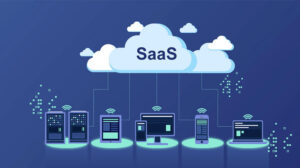We all would like to think that we can spot a scam a mile away – especially over email. Plenty of people know well enough now that there's no Nigerian prince who needs you to hide his riches offshore. The problem with business email scams, however, is that they are constantly evolving. Some of them are sneaky enough to fool targets into thinking they are helping out a trusted family member. Cybercriminals are incredibly crafty, and email is one of their favorite channels through which to take advantage of their victims. According to CNN Money contributor Jeanne Sahadi, these sorts of messages appear especially frequently when taxes start getting handled.
"Even if you're not rich, criminals still want to steal from you," Sahadi wrote. "And they come out in force around tax time, trying to trick you into sending them your address, Social Security number, credit card number, bank account number or any other valuable piece of information that can help them rob your identity or your money."
But it's not just personal email accounts that have a chance of being attacked in this way. In the workplace, these business email scams can be especially dangerous to fall prey to. Even if an employee is being targeted through their personal account, opening a malware-injected email attachment will carry serious repercussions if done on a company computer. Not only will a person's private data be exposed, but so will that of the business that they work for.
Should the message be aimed at the company itself, it could result in the loss of enterprise finances. A recent study conducted by security blogger Brian Krebs found that organizations all over the world have lost a combined $215 million through email scams over the last two years.
This is why enterprises have to keep email out of the workplace as much as possible. While it's true that the channel does have its place, the way in which modern professionals depend on it must be addressed. One of the most effective ways to curb email use is not to just to forbid it, but also to provide an alternative that mimic's its convenience. For document sharing, this comes in the form of implementing an online fax service – specifically, cloud-based faxing. Cloud-based faxing systems allow for the medium to be freed from legacy hardware and initiated through mobile endpoints.
Messages heavy in deception
For every person out there that thinks they know a scam when they see it, there is a cybercrime campaign designed to fool them. Occasionally, malicious hackers will pretend to be law enforcement agencies, demanding money and threatening jail time over crimes that haven't been committed. Other times, criminals masquerade as the United States Post Office and ask victims to click a link that will provide them information about an undeliverable package. The point here is that phishing attacks are always evolving, and many of them can be convincing enough to scam the most street-wise person in the office – even if they happen to be an executive.
According to Krebs, the Internet Crime Complaint Center has even seen phishing attacks that use information culled from messages in a professional’s email account. If a malicious hacker obtains access to a company inbox, they can use names, titles and other data to create an email compelling enough for employees to wire money overseas without a second thought.
"The requests for wire transfers are well-worded, specific to the business being victimized, and do not raise suspicions to the legitimacy of the request," IC3 said, according to Krebs. "In some instances a request for a wire transfer from the compromised account is sent directly to the financial institution with instructions to urgently send funds to bank 'X' for reason 'Y.'"
Companies have to start getting serious about preventing these sorts of instances in any way possible. It starts by cutting down on email use around the office. Regulating certain kinds of communications away from email is not only a great way to de-clutter inboxes, but it also helps to raise red flags with employees when things like financial information requests are made in an email message.
Cloud-based faxing is an effective alternative
Countless business professionals have found email attachments to be a convenient means of sending and receiving company documents. But the encryptions that commonly protect the channel are so flawed that data loss is all but certain. The scariest part about this is that employees often know the risks that they are taking, but fail to adjust their behavior accordingly.
This is why there has to be an alternative means of document sharing put in place that does not skimp on convenience or security. The best way to prevent excessive email usage is to put cloud-based faxing into place. Cloud fax leverages the protection of fax servers with the convenience of cloud technology.
Enhance enterprise communication, collaboration and compliance efforts with a proven FoIP solution from FaxCore. Contact FaxCore today to learn more about their 'Partly-Cloudy' fax solutions.




